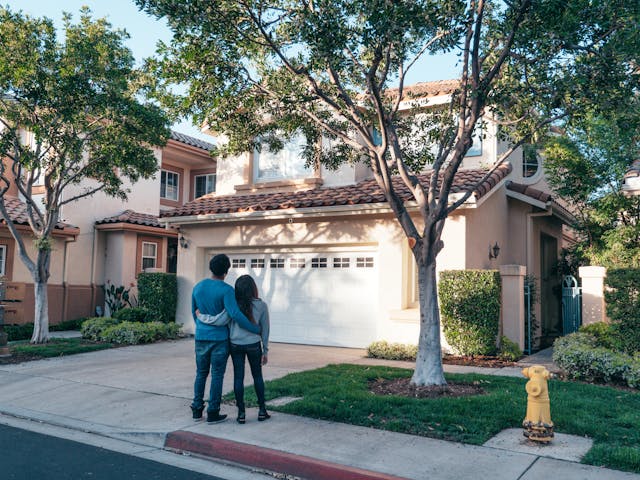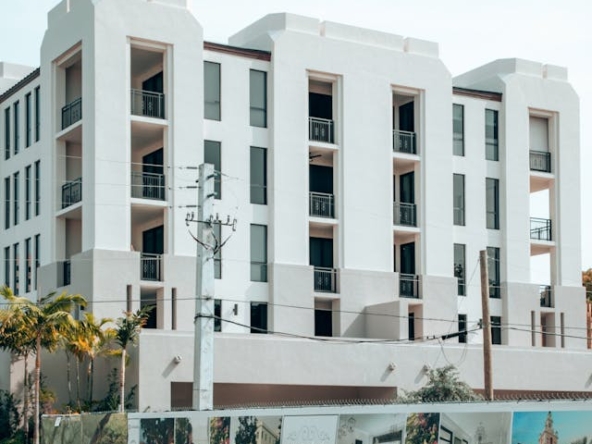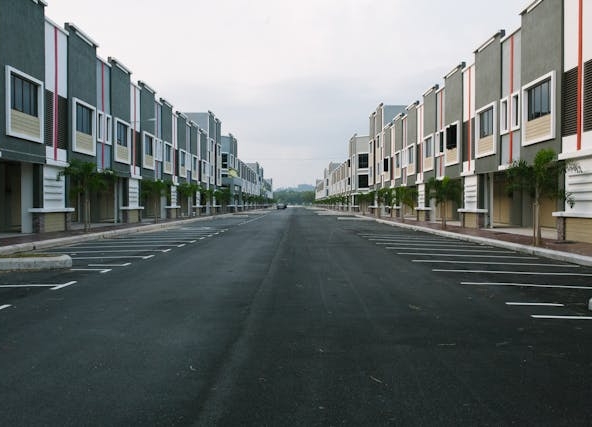Discover our comprehensive First-time homebuyer guide for Winnipeg. Navigate the prairie city’s real estate market, neighborhoods, and homeownership programs with confidence.
Buying your first home in Winnipeg can be an exciting yet daunting experience. This comprehensive guide will walk you through the process, providing local insights and practical tips to help you navigate the Winnipeg real estate market with confidence.
Key takeaways
- Assess your financial readiness before starting your home search
- Familiarize yourself with Winnipeg’s unique neighborhoods and housing market trends
- Take advantage of first-time homebuyer programs available in Manitoba
- Work with a local real estate agent who understands Winnipeg’s market nuances
- Get pre-approved for a mortgage to strengthen your position as a buyer
- Be prepared for additional costs like land transfer tax and home insurance

Understanding Winnipeg’s real estate landscape
Winnipeg’s housing market has its unique characteristics that first-time homebuyers should be aware of. The city is divided into distinct neighborhoods, each with its charm and amenities. From the historic Exchange District to the family-friendly suburbs of River Heights and Charleswood, there’s a neighborhood to suit every lifestyle.
Market trends in the ‘Peg
Winnipeg’s real estate market has been relatively stable compared to other Canadian cities. However, like many places, it has seen some fluctuations in recent years. As a first-time homebuyer, it’s crucial to stay informed about current market conditions. Keep an eye on average home prices, days on the market, and inventory levels to gauge the best time to buy.
Seasonal considerations
Winnipeg’s extreme climate can impact the homebuying process. Winter months often see fewer listings, but also less competition. Summer tends to be busier, with more options but potentially higher prices. Consider how different seasons might affect your home search and budget.
Assessing your financial readiness
Before you start house hunting, it’s essential to take a hard look at your finances. This step will help you determine how much house you can afford and prevent you from overextending yourself.
Saving for a down payment
In Winnipeg, as in the rest of Canada, you’ll need a minimum down payment of 5% for homes priced under $500,000. For homes between $500,000 and $999,999, you’ll need 5% on the first $500,000 and 10% on the remainder. Start saving early and consider setting up automatic transfers to a dedicated savings account.
Understanding mortgage options
Familiarize yourself with the different mortgage types available in Manitoba. Fixed-rate mortgages offer stability, while variable-rate mortgages might save you money if interest rates drop. Speak with local mortgage brokers to understand which option best suits your financial situation.
Budgeting for additional costs
Don’t forget to factor in other expenses associated with homeownership. These include:
- Property taxes
- Home Insurance
- Utilities
- Maintenance and repairs
- Land transfer tax (which is higher in Winnipeg compared to some other Canadian cities)

First-time homebuyer guide programs in Manitoba
Manitoba offers several programs to help first-time buyers enter the housing market. These programs can provide financial assistance or tax benefits, making homeownership more accessible.
Manitoba Home Ownership Program
This program offers down payment assistance to eligible first-time homebuyers. It provides a forgivable loan of up to 5% of the home’s purchase price, which can significantly reduce your upfront costs.
First-Time Home Buyers’ Tax Credit
The federal government offers a $5,000 non-refundable income tax credit for qualifying homes purchased after January 27, 2009. This credit can result in up to $750 in federal tax relief.
Home Buyers’ Plan (HBP)
This federal program allows you to withdraw up to $35,000 from your Registered Retirement Savings Plan (RRSP) to buy or build a qualifying home. It’s a great way to boost your down payment savings.
Navigating Winnipeg’s neighborhoods
Choosing the right neighborhood is crucial when buying your first home. Winnipeg offers a diverse range of communities, each with its character and amenities.
Downtown and Exchange District
If you’re looking for an urban lifestyle with easy access to restaurants, shops, and cultural attractions, consider downtown Winnipeg or the historic Exchange District. These areas offer a mix of condos and character homes.
River Heights and Wolseley
These established neighborhoods are known for their tree-lined streets, character homes, and a strong sense of community. They’re popular among families and young professionals alike.
Transcona and St. Vital
These suburban areas offer more affordable housing options and are great for families. They provide a mix of older homes and new developments, with good access to parks and schools.
Emerging neighborhoods
Keep an eye on up-and-coming areas like West Broadway and the West End. These neighborhoods are seeing revitalization efforts and could offer good value for first-time buyers.

Working with a local real estate agent
A knowledgeable local agent can be invaluable in your homebuying journey. They can provide insights into Winnipeg’s market, help you find homes that match your criteria, and guide you through the offer and negotiation process.
Finding the right agent
Look for an agent who specializes in working with first-time homebuyers and has experience in the neighborhoods you’re interested in. Ask for recommendations from friends or family, and interview a few agents before making your choice.
What to expect from your agent
A good agent should:
- Educate you about the local market
- Help you refine your home search criteria
- Arrange viewings and provide honest feedback on properties
- Guide you through the offer and negotiation process
- Recommend other professionals like home inspectors and lawyers
Getting pre-approved for a mortgage
Getting pre-approved for a mortgage is a crucial step in the home buying process. It gives you a clear idea of how much you can borrow and shows sellers that you’re a serious buyer.
The pre-approval process
To get pre-approved, you’ll need to provide your lender with:
- Proof of income (pay stubs, T4 slips)
- Proof of assets (bank statements, investment accounts)
- Information about your debts and financial obligations
- Your credit report
Shopping for the best rate
Don’t settle for the first mortgage offer you receive. Shop around and compare rates from different lenders. Consider working with a mortgage broker who can access rates from multiple lenders.
House hunting in Winnipeg
With your finances in order and a pre-approval in hand, it’s time to start looking for your dream home.
Open houses and viewings
Take advantage of open houses to get a feel for different neighborhoods and home styles. When viewing properties, pay attention to:
- The overall condition of the home
- The age and condition of major systems (heating, plumbing, electrical)
- The layout and whether it suits your needs
- The potential for future renovations or upgrades
Red flags to watch for
Be on the lookout for potential issues like:
- Signs of water damage or mold
- Cracks in the foundation
- Outdated electrical systems
- Poor insulation (especially important in Winnipeg’s climate)
Making an offer
When you find a home you love, it’s time to make an offer. Your real estate agent will help you determine a fair price based on comparable sales in the area.
Contingencies to Consider
Your offer should include contingencies that protect you as a buyer. Common contingencies include:
- Financing contingency
- Home inspection contingency
- Title search contingency
Negotiation strategies
Be prepared to negotiate. Your agent can help you decide when to stand firm and when to compromise. Remember, price isn’t the only factor – you can also negotiate on things like closing date, included appliances, or repairs.

The home inspection process
A thorough home inspection is crucial, especially for first-time buyers. It can reveal issues that aren’t visible during a casual viewing and help you avoid costly surprises down the road.
Choosing an inspector
Look for a licensed home inspector with experience in Winnipeg. They should be familiar with common issues in local homes, such as foundation problems due to our expansive clay soil.
What to expect during the inspection
The inspector will examine:
- The home’s structure
- Roof and exterior
- Electrical and plumbing systems
- Heating and cooling systems
- Insulation and ventilation
Be sure to attend the inspection and ask questions. The inspector’s report will be a valuable tool in deciding whether to proceed with the purchase or negotiate repairs.
Closing the deal
Once your offer is accepted and the inspection is complete, you’re in the home stretch. However, there are still important steps to complete before you can call the house your own.
Final walkthrough
Before closing, do a final walkthrough of the property to ensure it’s in the condition agreed upon in the sale contract.
Closing costs
Be prepared for closing costs, which typically range from 1.5% to 4% of the home’s purchase price. These may include:
- Legal fees
- Land transfer tax
- Title insurance
- Adjustments for property taxes or utilities
Moving day
Plan your move well in advance. Consider hiring a local moving company, especially if you’re moving during Winnipeg’s winter months.
Life as a new homeowner
Congratulations! You’re now a homeowner. But your journey doesn’t end here. Homeownership comes with ongoing responsibilities and opportunities.
Home maintenance
Create a maintenance schedule to keep your home in good condition. This is especially important in Winnipeg, where extreme temperatures can take a toll on your home.
Building equity
As you pay down your mortgage and your home potentially increases in value, you’ll build equity. This can be a powerful financial tool in the future.
Getting involved in your community
Winnipeg is known for its strong community spirit. Get to know your neighbors and consider getting involved in local community organizations or events.
- According to a report by the National Association of Realtors (NAR), first-time homebuyers made up 31% of all home buyers in 2020. Source
- A good strategy for first-time homebuyers is to save for a larger down payment. Zillow reports that the average down payment for first-time homebuyers was 6% in Q3 2020. Source
- Another effective strategy is to improve your credit score. According to Experian, the average credit score for first-time homebuyers is 685. Source
- First-time homebuyers can also consider getting pre-approved for a mortgage. Redfin reports that 71% of homebuyers in 2020 were pre-approved or pre-qualified for a mortgage. Source
Winnipeg homebuyer resources
| Resource | Description | Contact |
|---|---|---|
| Manitoba Housing | Offers programs for first-time homebuyers | 204-945-5566 |
| City of Winnipeg Property Assessment | Provides information on property taxes | 204-986-2200 |
| Organization | Services | Website |
|---|---|---|
| Manitoba Real Estate Association | Realtor listings and market reports | manitobarealestate.com |
| Winnipeg Regional Real Estate Board | Local market statistics and resources | wrreb.ca |
Common mistakes to avoid as a first-time homebuyer
- Not getting pre-approved for a mortgage
- Underestimating the total cost of homeownership
- Skipping the home inspection
- Failing to research the neighborhood thoroughly
- Overstretching your budget
- Not considering future needs
Buying your first home in Winnipeg is an exciting milestone. By understanding the local market, preparing your finances, and working with experienced professionals, you can navigate the process with confidence. Remember, homeownership is a journey, not just a destination. Enjoy the process of finding and creating your perfect home in the heart of the prairies. For more information, you can visit our website or contact us




